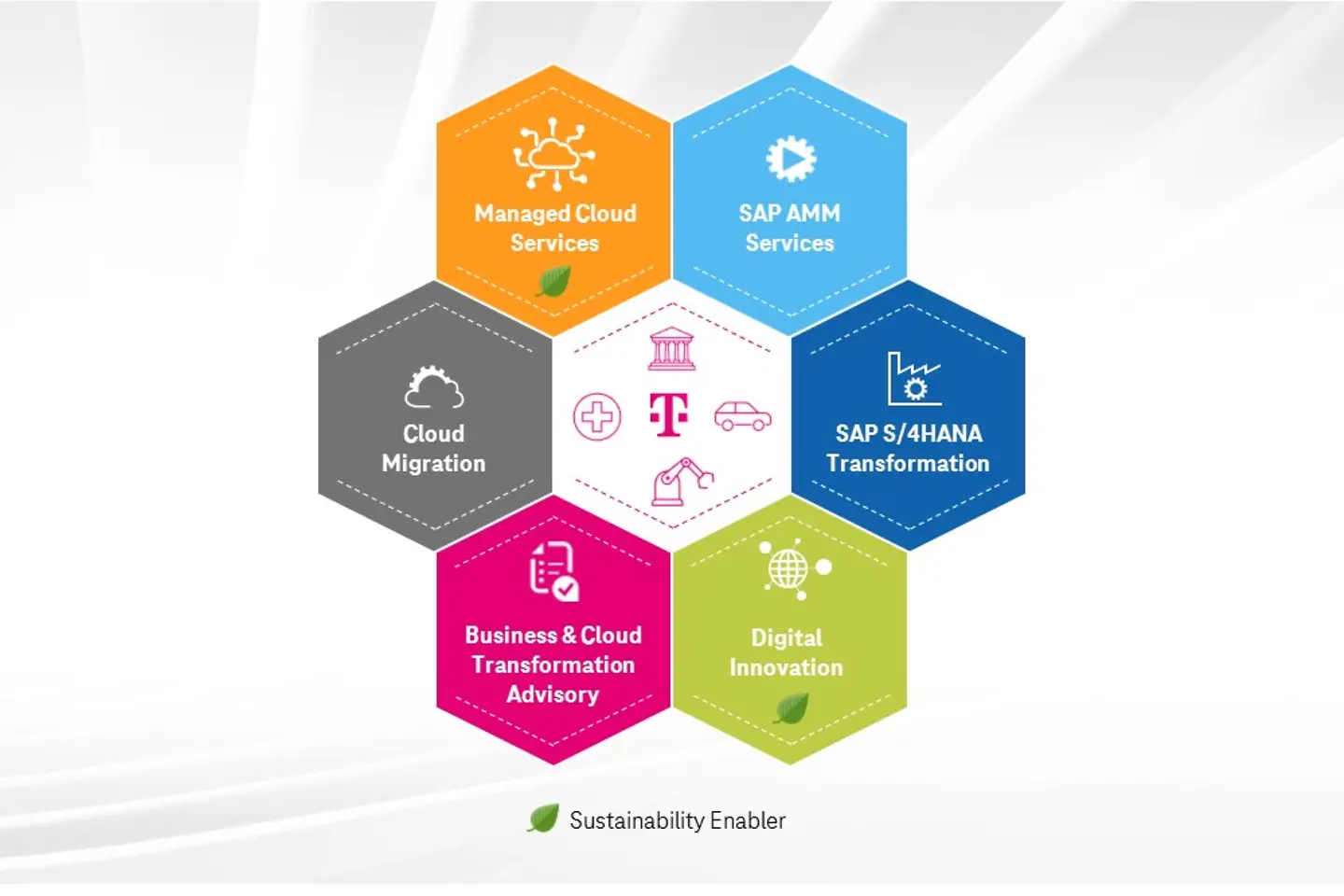

T-Systems is there to support companies with the right methods and tools as well as experience and expertise in order to sustainably modernize IT infrastructures and SAP-ERP landscapes. As part of our cloud-first strategy, we have already been successfully supporting companies for more than twenty years on their road to greater performance. Our cloud experts are offering cloud solutions tailored to the needs of the markets: from in-house private cloud solutions, which are hosted in German data centers, to our ecosystem which incorporates digitalization partners such as Microsoft Azure, Amazon Web Services, or Google Cloud.
T-Systems also realizes hybrid scenarios: these allow the linking of various SAP installations (private/public), the incorporation of data from SAP-external data sources, or the integration of third-party applications, such as Office 365, Teradata, Hadoop, and Oracle Exadata with SAP. Companies can also use this to link production lines with SAP systems. T-Systems offers:
By operating SAP applications in the public cloud, companies save costs and significantly reduce the total cost of ownership (TCO). At the same time, you can quickly react to changes in the market with flexibility and press ahead with innovations. T-Systems offers agile hyperscaler solutions which allow SAP applications to be used flexibly from a public cloud at any time. The predefined SAP software appliances are prepared in the same operational quality as on a private cloud – as certified managed SAP PaaS, GDPR compliant, and with pay-as-you-go pricing models.
Businesses need a reliable, secure hybrid cloud environment that includes the right public and private cloud components in addition to their own infrastructure components. T-Systems helps assists with the management of complex SAP landscapes and business-critical applications on a standardized, highly secure private cloud. Our complete packages (Full Time, High Availability, Disaster Recovery) and usage-dependent pricing models reduce SAP operating costs by up to 30 percent. The most up-to-date security technologies in our data centers offer maximum data security and comprehensive data protection.

Tomorrow's climate goals cannot be achieved with yesterday's technologies. We help companies to implement sustainability solutions such as Multi-Cloud for SAP as well as Product Footprint Management and SAP S/4HANA.